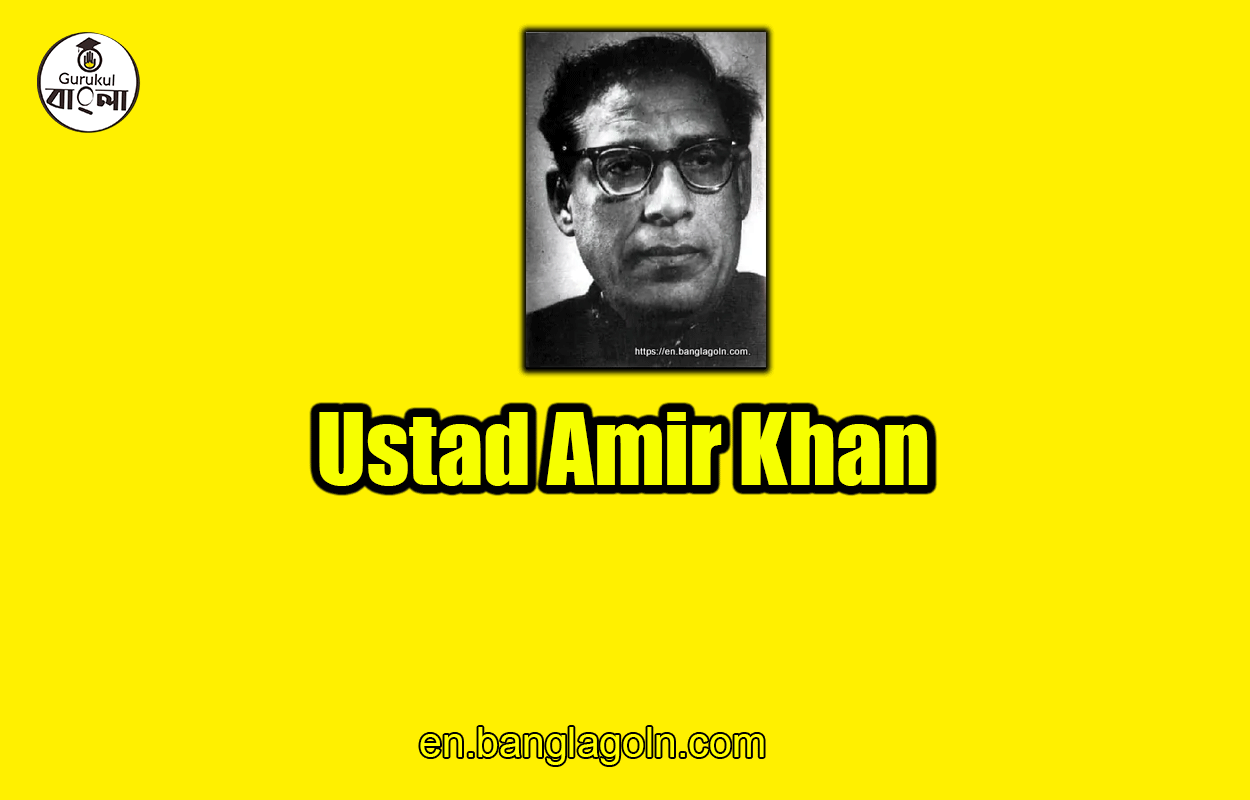Ustad Amir Khan (1912-1974) was an Indian classical musician and one of the most celebrated vocalists of the 20th century. He was born in Indore, Madhya Pradesh, India, into a family of musicians who were associated with the Bhendi Bazaar Gharana.
Amir Khan was trained initially by his father, Shahmir Khan, and later by his uncle, Abdul Rehman Khan. He also received training from other eminent musicians like Rajab Ali Khan and Alladiya Khan. He developed his unique style of singing, which was a blend of different gharanas and incorporated elements of the dhrupad and khayal styles.
Amir Khan’s music was characterized by his soulful voice, deep understanding of ragas, and mastery of the sargam (musical scale). He had a distinctive style of elaborating on a raga, which involved slowly building up the notes and exploring the different moods and nuances of the raga. His renditions were marked by a sense of serenity and introspection, and he was known for his ability to create a meditative atmosphere through his music.
Amir Khan was also a prolific composer and created several new ragas, including Darbari Kanada, Sur Malhar, and Shankara. He was a visionary who sought to expand the scope of Indian classical music and explore new horizons. He experimented with fusion music and collaborated with musicians from different genres and countries.
Amir Khan was honored with several awards and accolades for his contribution to Indian classical music, including the Padma Bhushan and Sangeet Natak Akademi Award. His legacy continues to inspire generations of musicians and music lovers, and his recordings are considered to be some of the finest examples of Indian classical music.
